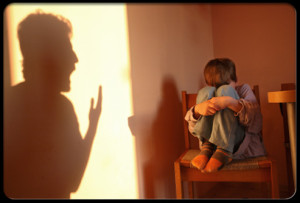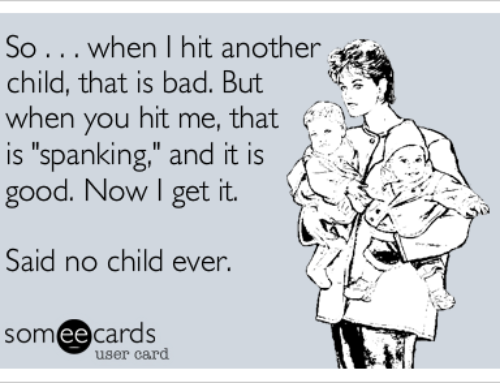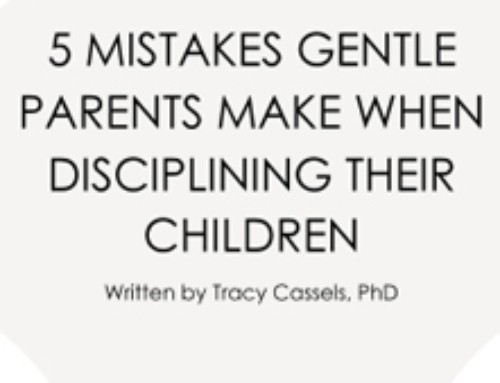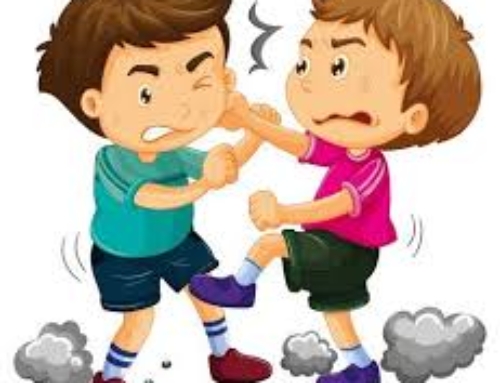“I yell at my kids because…
… they won’t listen!
… I’m frustrated!
… they’re making a mess!
… we’re trying to leave the house!
… they’re putting themselves in danger!
… I need to get this one thing done!”
 And so on and so forth. Those of us that have had to admit to yelling at our kids will typically come up with one of many reasons why we did it. We may not like that we did it, but we did and we have a reason. I would argue that the most common reason is actually a mix of kids not listening and parents getting frustrated. However, I think this ignores the main reason why we yell and why we can be the ones to change this behaviour.
And so on and so forth. Those of us that have had to admit to yelling at our kids will typically come up with one of many reasons why we did it. We may not like that we did it, but we did and we have a reason. I would argue that the most common reason is actually a mix of kids not listening and parents getting frustrated. However, I think this ignores the main reason why we yell and why we can be the ones to change this behaviour.
I yell at my kids because I’ve lost control
I firmly believe it is as simple as that. Whether we have lost control of our emotions or our children’s behaviour, the short is that we have lost control. But the types of control we lose say much more about our responses than anything else and I see three main types of loss of control that we have to contend with.
Loss #1. I’ve lost control of my children’s behaviour.
Unfortunately this is probably a relatively common one. Parents yell and even just get in the habit of yelling (without anger) in order to get their children to be obedient. Somehow we have established that we must have control over our children’s behaviour, but I’m not entirely sure if it’s to be a good parent, to stay sane, to be perceived as competent, or some other reason. Even in peaceful parenting circles, you see parents who want to control their child’s behaviour. They may not yell immediately to achieve it, they may negotiate or gently guide, but control is ultimately what they are after.
I know I’ve been guilty of this too. I have days where I want my daughter to be on my schedule and do the things I want her to do, however I can get her to do them. The problem here is that our sense of control is a complete illusion to begin with. We can try to control our children. We can make them afraid, we can negotiate, we can even offer bribes, but at the end of the day our control is simply them deciding to acquiesce (for good or bad reasons, depending on how we’ve tried to gain their compliance).
In traditional cultures where there are no immediate dangers, parents often don’t try to interfere with their child learning and behaving Obviously we don’t live in a society in which our children can just do ‘whatever’ and so we are, in part, responsible for our children’s behaviour. And this puts us in a crosshairs. We are responsible for them and yet we also must strive to help them become their own person with all that entails. But the immediate effect of “what will people think” often outweighs our long-term planning for our children. And we snap when we lose this precious control. What are we doing wrong? I’m not advocating leaving your child to do as he or she pleases. However, I firmly believe we are striving for far too much control and we need to learn to relax some of that a little in ways that allow a child’s autonomy to grow while still maintaining some boundaries. In short, I like to say “Pick your battles”. What does this mean? It means you have to relinquish control over many areas of your child’s life. You have to pick those that are truly important to you and your family and leave the rest to your child to decide. For example, I have decided clothing is an area I truly will not fight on. My daughter can wear what she wants anywhere and as little or as much as she wants. Yes, she’s left the house and shown up to my lab pantless. Some may be horrified by this, but this was not an area I felt I had the right to control. TV, however, is. We have had battles when I insist it’s turned off or not turned on at all (though they are fewer than one would imagine given she seems to only be interested in short bursts before returning to play). It is my responsibility as her parent to make sure she doesn’t sit in front of the TV all day and do nothing but watch. That matters to me. So I pick and choose. How does picking your battles help? For starters, it means there’s less of a chance of you losing it and yelling. When you have fewer things you “need” to control, you can be a bit more patient with them as you aren’t constantly feeling like you’re overwhelmed and being fought on every decision or request. But perhaps more importantly, you can actually increase the chances that your children are responsive to your requests. Research has shown time and again that parents who listen to their children and allow them to lead at times have kids who are more likely to listen to their parents when the parents request that they do something (for a review, see [2]). So if you feel you can, do yourself a favour, spend some time figuring out what you really need your kids to do, and let them control the rest. You’ll probably be doing both of you a favour. [Image Credit: iStock Photos]






what about climbing on stuff? i have found my self yelling at him (22 months) to get down (off of the bookcase, off of the window ledge, off the dinner table ect)..not nastily i ask him for the first 5 times and then get louder and then just move him. but do i just let him climb?
i know we are supposed to be climbing trees ect but i live in town and is it ok to take him to the woods to climb?? i ask because this boy WILL NOT wear shoes. thats an area i let him decide on. help!
thanks in advance
I think it depends on the danger. One thing I’ll be getting into in Part 2 is the stern voice. When we are in control and have mastered a voice that tells our children we mean it, we rarely have to get frustrated and yell. But I like your idea of giving him x number of warnings (if he’s not in danger) and then take him off. As for climbing trees, if you worry about him being barefoot (I wouldn’t be), then make a rule that he can climb trees as long as he’s wearing shoes. That’s it. No shoes = no climbing trees. And be firm and consistent with it.
There’s not any real reason to wear shoes you know. Plenty of people go their whole life, including climbing trees, without shoes. It’s not really a ‘safety’ issue. In fact, as someone who used to climb trees barefoot all the time, you’re a whole lot less likely to fall out of said tree with barefeet to help grip and bend than stiff shoes.
I yell when I’m frustrated, sure, and I think it’s a darned good indicator for the kids. ‘Uh oh, mom’s loosing patience, better shape up’. (Usually in the form of ‘Enough!’) But mostly I yell for the same reason the fire alarm is loud, loud noises get our attention *right now*. I don’t mean sustained volume for scolding, I mean one or two words shouted for attention, usually ‘stop!’, their name, or ‘pay attention!’. I have the ‘mommy voice’ too, but that doesn’t necessarily carry without the extra umph behind it over yelling kids, t.v., etc. My kids yell, and in general I have no objection to loud play, so your volume has to be similarily loud to be capable of getting attention. I’m also the kind of parent who mostly advises ‘don’t do that, you’ll hurt yourself’ isn’t a command but a warning. If they choose to ignore it they’ll either prove me wrong and proudly proclaim ‘see, I can do it’ (followed by me saying ‘very well done, but be careful, if you don’t pay attention you could hurt yourself) or they’ll figure out that listening to mom is a good idea. (I mean things like climbing something on a playground or tipping back in a chair, not playing with knives or climbing bookshelves) They know if I say ‘your going to want to stop that’ I am, ultimately making a suggestion, if I bellow ‘STOP NOW!’ They know it’s a command.
I admit I don’t consider the loud voice over other loud things to truly be “yelling” in the sense here. I see that as the firm voice just having to be taken an octave higher because of incidental noise 🙂 If you have to yell to get attention, that’s very different than yelling to scold or continued yelling because you have lost control.
But again, it sounds like you’re also still advocating the pick your battles. You won’t control everything and, as you said, they’ll either learn or prove you wrong.
My mum never yelled at me, if she caught me doing something wrong she’d gently explain, using words I could understand, why it was wrong. She would then give me a calm warning that the next time she caught me doing that particular thing I would get a smack. If I was caught in the act again, the smack was delivered without any other warning. She used the back of her fingers to the back of my thigh. It left a red mark that faded quickly, and it stung forever (30 minutes at most). I’d be left to think about what had happened, and I would then go and apologize to my mum, we’d share a cuddle and that would be the end of the matter. I can’t recall being smacked more than four times between the ages of 3 and 5 years. I wasn’t smacked at all by my mum after that, simply because I started figuring out what was likely to result in a smack, and mum’s smacks were a thing to avoid.
And herein lays the problem with smacking – you learned to avoid it to avoid the smack, not because the act associated with avoidance was the right thing to do.
[…] Edit: Cum navigam eu ca o floricică pe facebook am dat peste articolul Yelling (Part 1) de pe Evolutionary Parenting. Dați-i un click, că […]